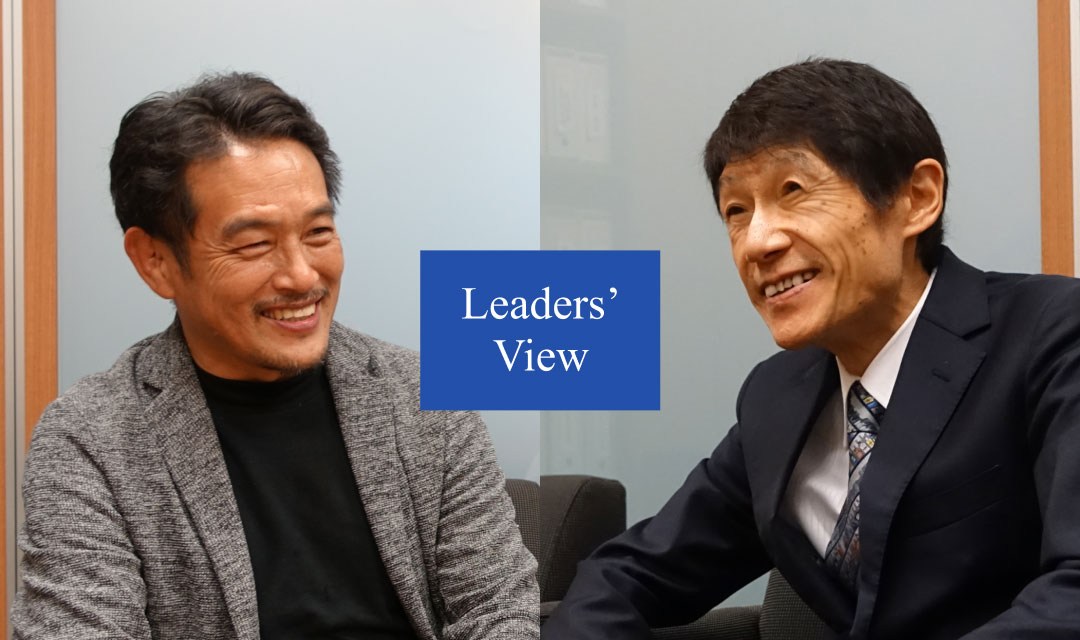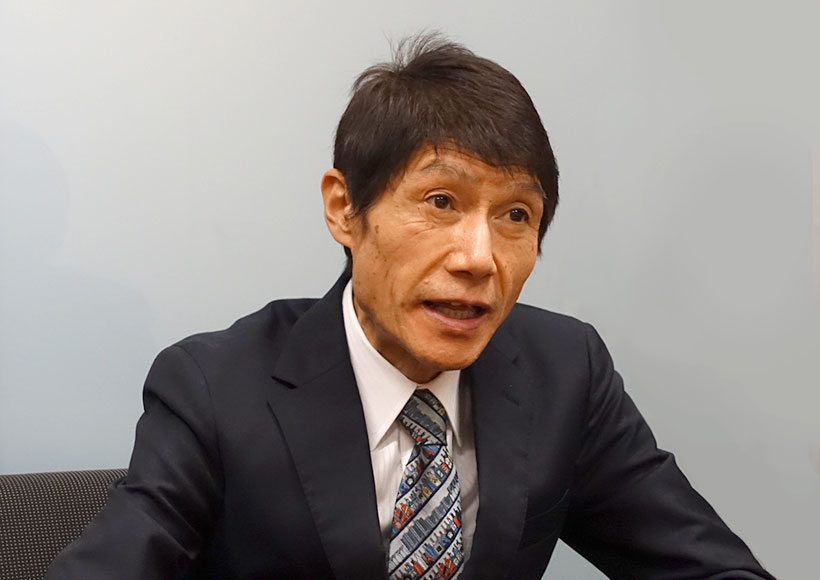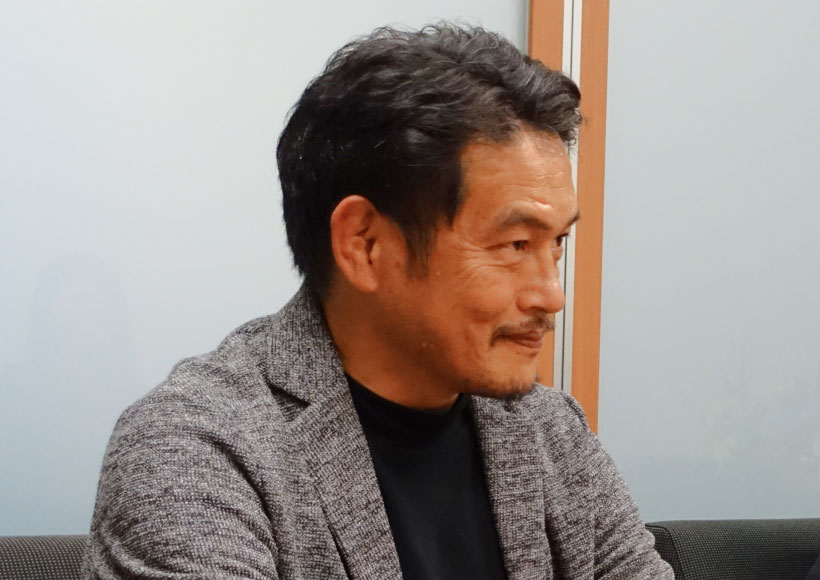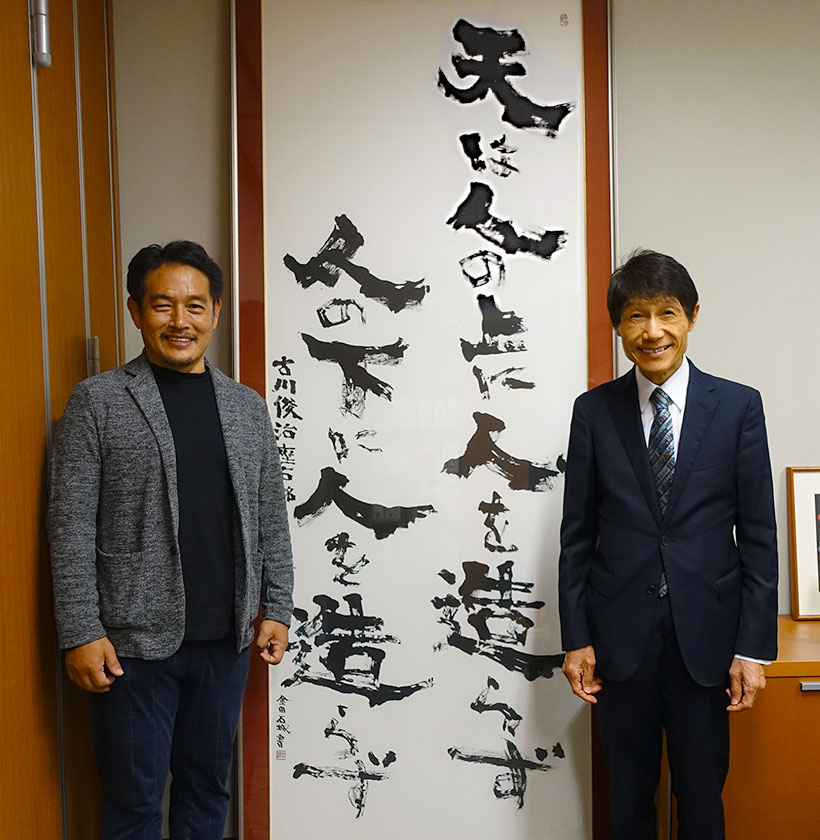Leaders’ View
Our success
depends on talents
who understand both
science and management
COO Atsushi Mizuno, Ph.D.

How did you start the company?
Furukawa : In 2001, along with Dr. Toda and Dr. Okano, I co-founded the first startup at Keio University School of Medicine that aimed to develop a new regenerative therapy for neurological disorders. Unfortunately, due to the financial influence of the Lehman Shock, our initial efforts faced setbacks.
Subsequently, I witnessed the remarkable progress in regenerative medicine as a surgical practitioner involved in advancing regenerative medicine and genetic editing technologies, and as a legal professional navigating the legal landscape of regenerative medicine. It was in 2019, when Dr. Toda approached me with a proposal, “Can we take on another challenge and potentially commercialize these technologies?” Fueled by a renewed interest in cutting-edge regenerative medical techniques we agreed that this was a pivotal moment, and we embarked on the journey of founding iXgene.
The founding members, except for Dr. Mizuno, remain the same as they were back then.
Mizuno : After obtaining my doctorate at graduate school, I gained experience on both the investment and business sides in venture capital, bio-related ventures, and large corporations. My previous position was in an AI x Bio startup, but through a mutual acquaintance, I had the opportunity to meet Dr. Furukawa and was deeply captivated by his vision. Shortly thereafter, I received an offer from him and decided to join the challenge.

What kind of society and future do you aim to achieve through your business?
Furukawa : We believe that the combination of regenerative medicine and genetic editing, as a new technology platform, holds the key to innovative breakthroughs. While regeneration involves supplementing lost functions, we aspire to go beyond the conventional approach of using same types of cells. Instead, we aim to reconstruct human functions with cells that are not only regenerated but are also functionally enhanced.
Our vision imagines a society and future where we go “Above Healthy – Stronger, More Powerful.” This is the future we envision for our business.
What is the current progress in your efforts towards realizing the above vision?
Furukawa : Our therapeutics in development have repeatedly demonstrated efficacy in animal studies, so we currently focus on elevating them to a quality that can be applied in the clinical practice.
Gene editing is a groundbreaking technology and has made remarkable progress with the revolutionary discovery of CRISPR-Cas9. However, a complex and intricate patent system in the United States is a barrier to commercialization.
We will circumvent that barrier and efficiently produce a sufficient number of highly useful therapeutic cells at a limited cost.
We are now in the process of repeating experiments to establish the optimal operating procedure.
What is your vision for the organization in the future?
Furukawa :
In scientific discussions, everyone should be encouraged to freely express his/her opinions irrespective of his/her positions. Our company fosters an environment where everyone holds such awareness, and even young or newly joined individuals can express their opinions clearly. We consider this open communication as a strength of our company.
While we senior experts bring experience and perspective to the table, it is younger researchers in the laboratory who actually put our ideas to the examination. We provide feedback on the data they generate, but they often notice issues we might overlook and contribute to improving technological details.
The speed of their growth as a researcher is truly astonishing.

Mizuno : Members engaging in R&D come from different backgrounds: some are corporate researchers, while others are from academia. We work hard toward the same goal, often complementing each other. They are all open to expressing their opinions. As a manager, I would like to build a trust-based team taking advantage of the high ability of each member.
Furukawa :
Looking at Silicon Valley and other innovation hubs, there are many people who “understand science and also understand business”. For a life science startup, it is absolutely imperative to have personnel who can do both.
I hope that the members who currently engages in research and development will gradually learn management skills and grow into such capable talents. I hope that they will try to establish their own startups in the future.

